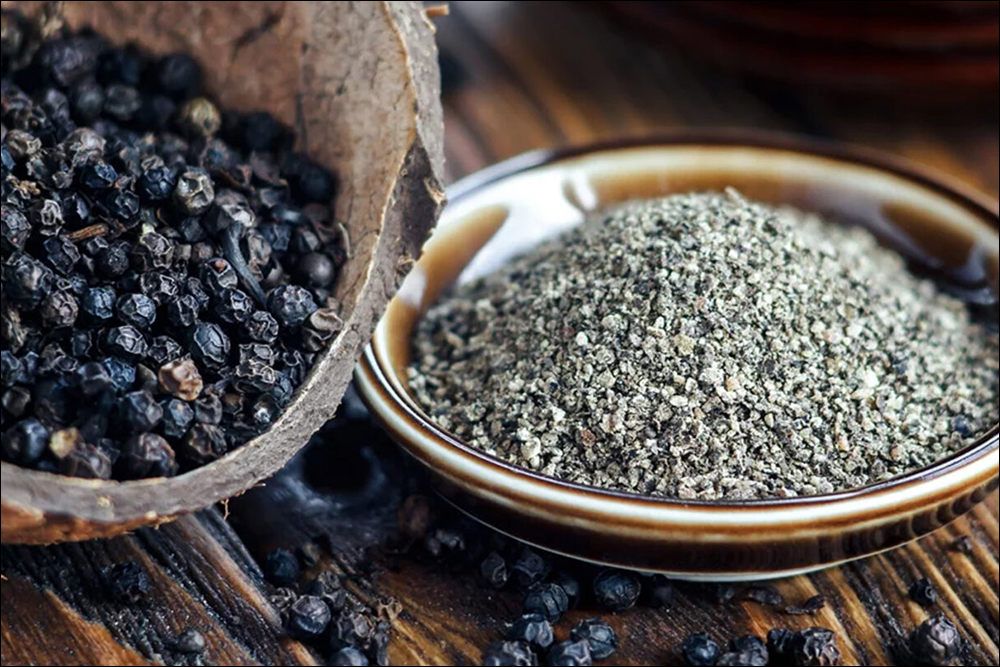Dec 01, 2021

Indian cuisine offers a variety of spices that tingle not only your taste buds, but also impact health positive effects. Black pepper is perhaps the best-loved and most widely used spice in the world, adding both heat and depth of flavor to nearly any dish. Black pepper, is one of those spices which can turn dull dishes into lip-smacking.
Belonging to family Piperaceae, native to Asia, black pepper is of two types- black and white black pepper. Black pepper yield both black and white pepper. Black pepper is made by drying ripe or unripe fruits under the sun; white pepper by soaking, treating and removing outer skin of berry before drying.
HISTORY
Black pepper was considered to be one of the valuables during middle ages that it was referred to as “black gold” in Greece. Black pepper has been used as currency (to pay taxes, private debts and ransoms, among other transactions) in those times. It catalyzed the spice trade, led to the exploration of undiscovered lands, and spurred the development of merchant cities in the Middle East and Europe. Black pepper was presented to gods as a sacred offering and given to the invading barbarians during the fall of ancient Rome.
BLACK PEPPER IN KITCHEN
HEALTH BENFITS
Fights Cancer – According to a University of Michigan study, the active ingredient piperine found in black pepper can help prevent breast cancer. In another study published in the journal Experimental and Molecular Pathology, piperine helps expose rectal cancer cells to certain chemicals that kills the cancer cells.
Improves Digestion Health – Black pepper stimulates the production of hydrochloric acid, which is needed to reduce indigestion, constipation, and diarrhea. Black pepper is also a diuretic, helping the body get rid of unwanted toxins. It is considered to be having carminative properties and often uses as an anti-flatulence compound.
Antioxidant – It’s high in carotenoids and antioxidant nutrients such as potassium required to control high blood pressure, calcium to strengthen bones and teeth, zinc to promote cell growth, on other nutrients which helps fight the harmful effects of oxygen. When taken with turmeric, another potent Indian spice, the anticancer properties may be enhanced.
Skin Health – The active ingredient in black pepper, piperine, has been show to maintain skin pigment in a Great Britain study. When mixed in with a face scrub, black pepper helps clear your skin since it stimulates oxygen and nutrients to surface on your face. The texture of the black pepper also helps scrape away the dead skin cells of the face for a smoother complexion. Several studies conclude that black pepper may contain not only anti-inflammatory, antioxidant, antibacterial and fever-reducing actions, but immune system-enhancing properties as well.
In one study it was found that black pepper constituents may be useful in cessation of smoking treatments. Now that you are aware of the surprisingly health benefits provided by black pepper, its time to include black pepper on everything you eat. Just remember freshly ground black pepper holds more benefits than cooked black pepper with the food. The best way to keep the black pepper as fresh is to store it in an airtight container and away from the sun.